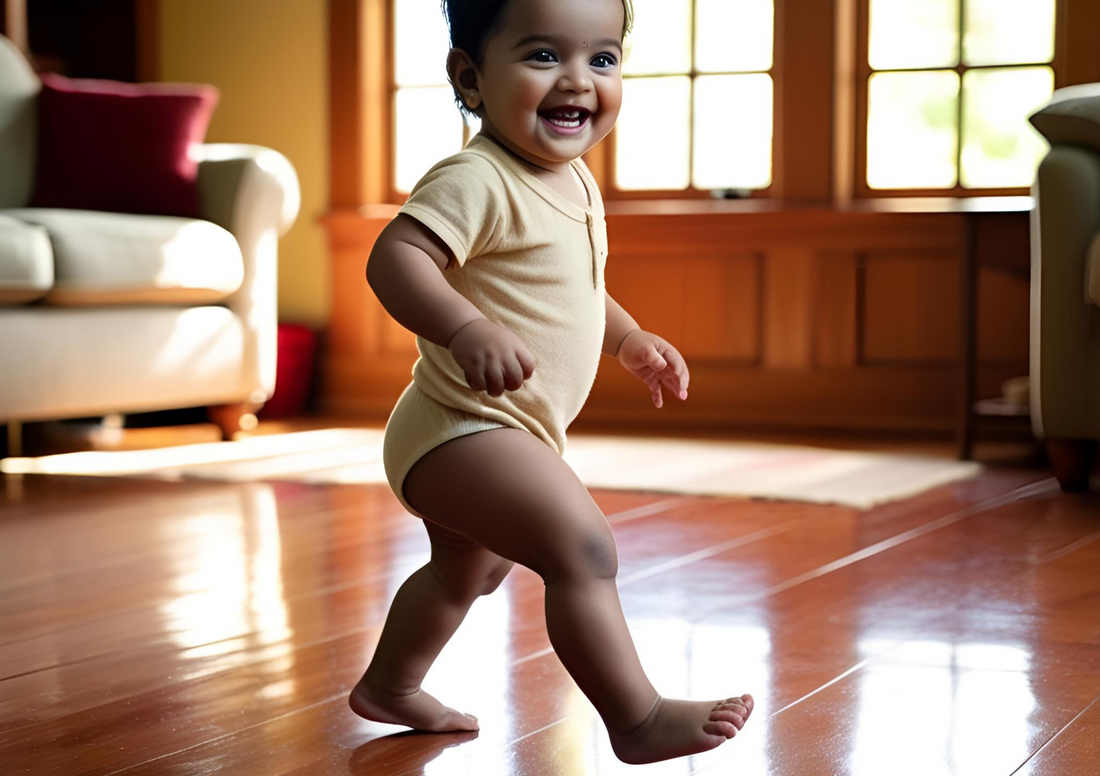
First Steps - What Helps and What Does Not
LiLLBUDNot all shoes or walkers help your baby walk — some might actually slow them down.
Your baby is on the brink of one of their biggest milestones — their very first steps!
This stage (typically around 10–14 months) is filled with wobbles, falls, and triumphs. But how can you actually help without pushing too much?
Let’s break down what supports healthy walking development — and what might unknowingly slow it down.
What Helps Your Baby Take Their First Steps
1. Barefoot Time Indoors
Walking barefoot helps babies develop balance, coordination, and grip through the soles of their feet.
Safety tip: Use non-slip socks only for cold floors.
2. Stable Push Toys (Not Walkers)
Push toys (like a mini shopping cart or sturdy wagon) help build strength and coordination while encouraging forward movement.
Safety tip: Make sure it has some weight so it doesn’t slide too fast.
3. Lots of Floor Time
Crawling, cruising, and pulling up are essential stepping stones. Don’t rush — floor play strengthens core muscles needed for walking.
Safety tip: Create safe cruising zones around furniture.
4. Safe, Open Spaces
Wide, obstacle-free areas allow practice without constant redirection or the risk of bumping into furniture.
Safety tip: Avoid overly padded rugs that trip up tiny feet.
5. Encouragement Without Pressure
Simple gestures — open arms, clapping, or even holding a toy a step away — are great motivators.
Safety tip: Let them initiate — never pull them to walk.
What Doesn’t Help (And Might Even Delay Progress)
1. Baby Walkers
Contrary to popular belief, walkers don’t teach babies to walk — they can actually delay muscle development and pose injury risks.
2. Shoes at Home
Shoes can reduce sensory feedback from the ground, affecting balance - barefoot is best for indoors until they’re confidently walking.
3. Holding Their Hands Constantly
This changes their natural posture and doesn’t help with balance - encourage them to pull up and cruise on their own.
4. Rushing the Milestone
Every baby walks on their own timeline, often between 12 to 15 months - avoid comparing with other babies or forcing practice.
Make It Fun by incorporating walking into play
- Chase games with soft toys
- Dance time with cruising support
- Interactive songs with movement (e.g. “If You’re Happy and You Know It”)
Remember:
Your baby's body knows when it’s ready.
Trust the process, offer support, and celebrate the tiny wins — this first step is just the beginning.

